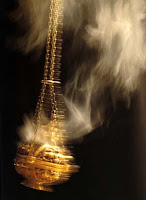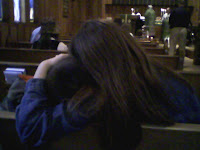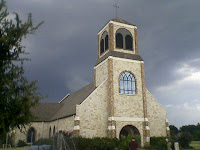 Today is December 7th, the 68th Anniversary of the Japanese attack on Pearl Harbor. The Japanese people, with their rich culture, fascinating history and beautiful home islands, are no longer an enemy of the U.S. On the contrary, Japan has become not only a healthy commercial neighbor, but also an ally in resisting the present-day threats from North Korea and China (not to mention the Soviet Union during the decades-long Cold War). Therefore, remembering the attacks on Pearl Harbor is not intended to resurrect indignation toward a historic enemy. Indeed, Japan is not the only former enemy to become a close ally against mutual threats. The United Kingdom is an excellent example of this, for July 4th celebrations do not strain the current U.S.-U.K. alliance. So the reason for remembrance must serve another purpose.
Today is December 7th, the 68th Anniversary of the Japanese attack on Pearl Harbor. The Japanese people, with their rich culture, fascinating history and beautiful home islands, are no longer an enemy of the U.S. On the contrary, Japan has become not only a healthy commercial neighbor, but also an ally in resisting the present-day threats from North Korea and China (not to mention the Soviet Union during the decades-long Cold War). Therefore, remembering the attacks on Pearl Harbor is not intended to resurrect indignation toward a historic enemy. Indeed, Japan is not the only former enemy to become a close ally against mutual threats. The United Kingdom is an excellent example of this, for July 4th celebrations do not strain the current U.S.-U.K. alliance. So the reason for remembrance must serve another purpose.I posit that the reason why we MUST take time to remember and reflect on such days (i.e. Dec 7th, June 6th, Sept 11th, July 4th, etc.) is not because we love war, but because we love those who have fought and must fight them for us. Our moments of remembrance are the opportunity to soberly reflect on the nature of humankind, and the necessity for bravery and sacrificial duty in the face of unjust aggression. In essence, remembering historical moments of conflict is to reflect on the unpleasant reality of humankind's perpetual need for valor and courage in resisting evil aggression. Battlefield virtues may illuminate positive sides of humanity, but their necessity at all displays the negative sides of us as well. It's unpleasant business to reflect on man's need for defense and bravery, but it's important.
This principle is applicable to the Christmas season as well.
For example, our priest pointed out the other day that Advent is for "building up to Christmas," without celebrating it too soon. I found this curious. Does not the Christmas season begin the day after Thanksgiving ("Black Friday" insanity notwithstanding)? Should not the Christmas carols be sung jubilantly as soon as possible? Apparently not according to the "spirit" of Advent (mind you, I'm new to much of the historic Christian calendar, so my understanding of Advent must not be taken as authoritative). From what I'm learning, Advent is for reflecting on our need for a Savior in anticipation of His coming. It is to soberly reflect on why God would need to fully take humanity onto himself, enter our experience as a vulnerable newborn in a stinky, untidy stable. Indeed many carols are sung in a minor key because the tragedy/triumph of God entering humanity as a newborn is as much mourning over our need for salvation as it is a celebration of how he meets that need. Some aspects of remembering when Emmanuel ("God with us") was born can be unpleasant business, but it's so important.
For some, the unpleasant aspects of remembering deter them from taking the time to do so. "Why dwell on unpleasant things?" so goes their logic. The answer? Because it's important; because failing to remember can breed unhealthy ignorance regarding our needs, our flaws and our potential. All of the ways one should reflect on the reality-exploding nature of the Incarnation can be left for another time, for today is Dec 7th, deserving of it's own emphasis.
Memorializing the attack on Pearl Harbor is good because it reflects honestly on the nature of humankind, and remembers those moments when courage and valor were brought to the surface by the the scalding heat of combat dynamics. It's right because it celebrates a period in history when defensive might and national unity were (rightly so) held less suspect than can be assumed in the present culture (cynicism regarding present day military application must not retard appreciation for times when the cause was more clear and the goals more noble). I would encourage many to read FDR's "Infamy" speech, or watch a movie about the Pearl Harbor attack (accuracy is not the key objective with such films, but instead to remember and emote with the historic figures that lived through it precisely as it happened).
Take time to remember what occurred during that generation, and to those servicemen and women. Remember the virtues of sacrifice, duty, bravery and valor. Remember that such events are still possible today, for humankind has not evolved so much since then. Remembrance can be unpleasant... but it's necessary.










 journey to "a far green country." We taste in part the presence of Christ that we will one day enjoy to the full. We behold his beauty in preview. We touch the petals of his garden carved into the sides of pews. We smell the sweet incense of prayers offered to the Father when such practices
journey to "a far green country." We taste in part the presence of Christ that we will one day enjoy to the full. We behold his beauty in preview. We touch the petals of his garden carved into the sides of pews. We smell the sweet incense of prayers offered to the Father when such practices 





